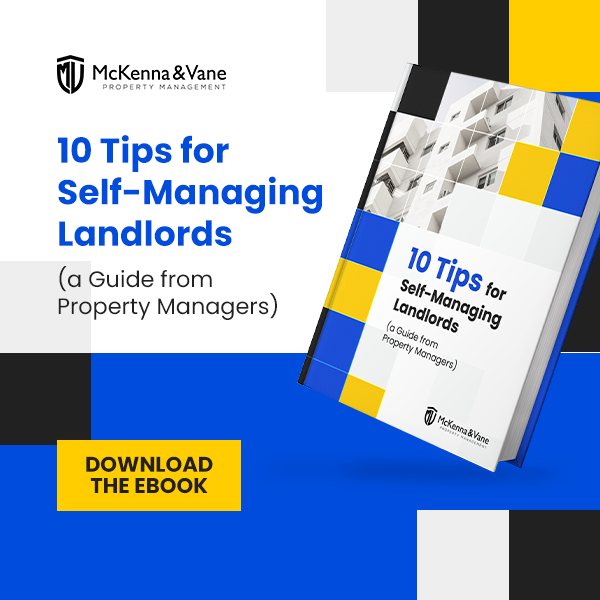How to Transition from Part-Time to Full-Time Landlord

For many rental property owners, the prospect of transitioning from being a part-time to a full-time landlord is an exciting and potentially lucrative endeavor. Managing rental properties on a full-time basis can provide a stable source of income and long-term financial security.
However, making this transition is not without its challenges. Before you decide to manage your rental properties full-time, it’s crucial to understand the benefits and potential risks involved. Knowing the process can help you transition smoothly and have a better rental experience.
The Benefits of Being a Full-Time Landlord
Owning rental properties is one of the most profitable ventures. You can earn a steady stream of income while building equity in your assets. Plus, when you choose the right location for your investment properties, you will likely benefit from long-term appreciation, allowing you to gain better returns later on.
If you decide to build your portfolio, managing your rental properties full-time may be necessary. Here are some reasons why you should consider being a full-time landlord:
- Steady Income Stream: One of the primary benefits of being a full-time landlord is the assurance of a steady income stream. When you have multiple properties under your management, you can rely on rent payments to cover your living expenses.
- Scalability: Full-time landlords have the opportunity to scale their rental property portfolios. As your experience and resources grow, you can finance more investment properties, further increasing your income potential.
- Tax Advantages: Full-time landlords may benefit from various tax advantages and deductions related to property management. These can significantly reduce your overall tax liability.
- Property Appreciation: Owning rental properties can be a solid long-term investment. Properties tend to appreciate in value over time, allowing you to build wealth and secure your financial future.
- Independence: As a full-time landlord, you have the independence to set your own schedule and be your own boss. This flexibility can be a significant quality of life improvement.

Factors to Consider Before Deciding to Become a Full-Time Landlord
Being a full-time landlord can come with risks. Consider the following before taking this big leap.
Market Conditions
Analyze the current real estate market conditions in your target areas. Market fluctuations can significantly impact your rental income and property values, so it's essential to stay informed and adaptable.
Risk Tolerance
Full-time landlords face more significant financial risks than part-time landlords. Consider your risk tolerance and ensure you have a financial safety net to handle unforeseen challenges like vacancies, repairs, or economic downturns.
Time Commitment
Being a full-time landlord demands a considerable time commitment. You'll need to address tenant inquiries, handle property maintenance, and stay updated on property-related laws and regulations. Ensure you have the time and dedication required for this role.
Exit Strategy
Consider your long-term goals and potential exit strategies. Whether you plan to build a substantial property portfolio for retirement income or intend to sell your properties after a certain period, having a clear strategy in place is crucial.
Steps to Take When Transitioning From Being a Part-Time to a Full-Time Landlord
Transitioning to being a full-time landlord requires a structured approach. Here are the essential steps to take:
Assess Your Financial Situation
Before making the leap to being a full-time landlord, assess your financial stability. Calculate your expenses, including mortgage payments, property maintenance, and personal living expenses. Ensure you have a financial safety net in place to cover unexpected costs.

Consider Legal and Regulatory Requirements
Ensure you are familiar with the legal and regulatory requirements for rental properties in your area. This includes knowing tenant rights, landlord obligations, and any local laws or ordinances that might impact your properties.
Expand Your Property Portfolio
Consider acquiring additional rental properties to diversify your income stream. A diversified portfolio can help mitigate risks associated with the real estate market's fluctuations.
Evaluate Your Time Commitment
Determine how much time you can allocate to property management. Being a full-time landlord requires a substantial time commitment, so be prepared to handle various responsibilities, including property maintenance, tenant relations, and administrative tasks.
Establish a Business Plan
Create a detailed business plan that outlines your goals, budget, and strategies for growth. This plan should also include financial projections and contingency plans in case of unforeseen challenges.
Network and Build Industry Relationships
Networking with other landlords, property managers, and real estate professionals can be invaluable. These connections can provide support, advice, and potential business opportunities.
Invest in Property Management Software
To streamline your property management tasks, consider investing in property management software. These tools can help you manage rent collection, maintenance requests, and tenant communication more efficiently.
Build a Team
As your property portfolio grows, consider building a team to assist with property management tasks. This may include hiring maintenance personnel, leasing agents, or a professional property manager.

Why You Should Hire a Property Manager
Hiring a property manager can help alleviate the responsibilities involved in being a full-time landlord. Property managers can also help maximize your income while minimizing your workload. Here are the reasons why you should consider hiring one:
- Time Savings: Property management can be time-consuming, especially when dealing with multiple properties. Hiring a property manager allows you to focus on your investment strategy and other life priorities, freeing up valuable time.
- Expertise: Property managers are well-versed in the nuances of tenant relations, property maintenance, and legal compliance. Their expertise can help you avoid common pitfalls and navigate challenging situations effectively.
- Tenant Screening: Property managers have established tenant screening processes to find reliable renters. They can conduct thorough background checks, assess credit histories, and verify rental references, reducing the risk of problematic tenants.
- Legal Compliance: Property managers stay up-to-date with changing rental laws and regulations, ensuring that you remain compliant with all legal requirements. This can protect you from legal issues and financial penalties.
- Property Maintenance: A property manager can coordinate routine maintenance and address emergency repairs promptly to preserve the condition and value of your properties.
Conclusion
Transitioning from a part-time landlord to a full-time landlord is a significant step that offers financial stability and several other benefits. Carefully consider the steps in our guide to ensure a smooth transition.
Hiring a property manager can be a wise investment, as it saves you time and improves your profitability. With the right approach and guidance, you can successfully transition from being a part-time landlord to a full-time one, enjoying the benefits and profits that come with it.
If you need help, call McKenna & Vane Property Management and we’ll be happy to assist you!
